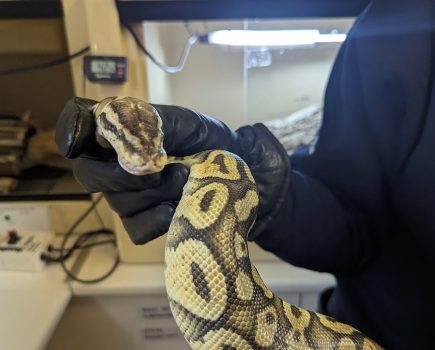JANUARY 13, 2008: A major seed company has urged gardeners not to view old vegetable varieties as superior to modern strains simply on account of their age, but to keep an open mind on the relative merits by choosing to grow the best of both.
Ann Loads, commercial director at Mr Fothergill’s, does not join in the lament for the loss of all ancient varieties. “One very good reason why some have disappeared is because they were not that good to begin with and have been superseded by modern introductions”, she claims. “Having said that, some excellent varieties have regrettably disappeared as they are no longer a viable crop for commercial production, but if it were not for EU regulations we would still be able to offer these to gardeners. “There are, however, many old favourites which are still available, such as Broad Bean Bunyards Exhibition (introduced in 1884), Runner Bean Scarlet Emperor (1906), Carrot James Scarlet Intermediate (1870) and Lettuce Tom Thumb (1830) which still feature in our offer because they are still widely produced and worth growing”.“Diversity in vegetables is, of course, desirable and it is important to have a varied gene pool of both old and new varieties from which to breed, but we should not dismiss new ones simply because of their modernity”, she maintains. Ann believes that where many modern vegetable varieties score over their forbears is in their tolerances of or resistances to pests and diseases which have been bred into them by careful selection work by natural means. “With an increasing number of gardeners choosing to garden organically or with only a minimum use of chemicals, plants which are naturally healthy and robust offer a big advantage”, she says. In Mr Fothergill’s 2008 mail order catalogue Ann has highlighted many such modern varieties with a “healthy” tag to help gardeners make an informed choice. These include Carrot Flyaway F1, which deters carrot fly, Cabbage Kilaton F1 and Cauliflower Clapton F1, both of which are resistant to club root, Lettuce Balmoral with its resistance to mildew races 1 – 16, and Tomato Sparta F1, which resists TMV and types of fusarium. “While some modern varieties have been bred with commercial practice in mind, such as ease of mechanical harvest and long storage, which are not important to gardeners, others have been bred for their taste. It is these varieties we focus on offering, combined with their ability to perform well”, concludes Ann. To request a free copy of the catalogue from Mr Fothergill’s, telephone 0845 1662511, fax 0845 1662522, go online at www.mr-fothergills.co.uk or write to Mr Fothergill’s Seeds, Kentford, Suffolk CB8 7QB.







